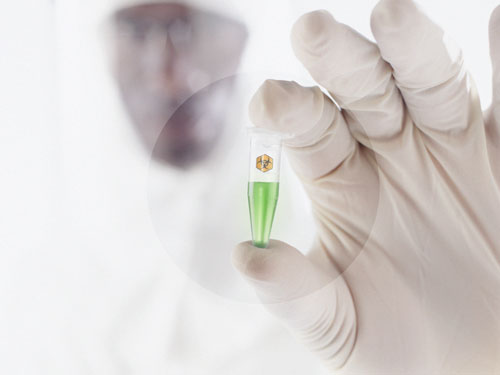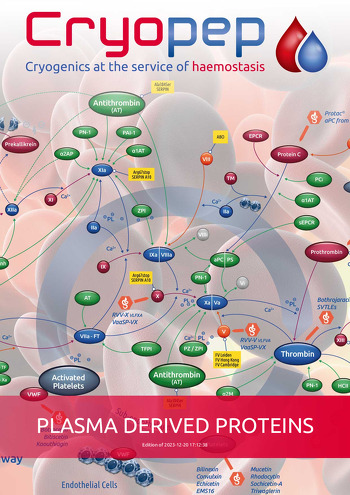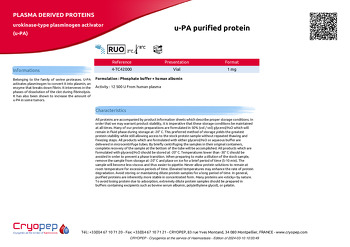Belonging to the family of serine proteases. U-PA activates plasminogen to convert it into plasmin, an enzyme that breaks down fibrin. It intervenes in the phases of dissolution of the clot during fibrinolysis. It has also been shown to increase the amount of u-PA in some tumors.
All proteins are accompanied by product information sheets which describe proper storage conditions. In order that we may warrant product stability, it is imperative that these storage conditions be maintained at all times. Many of our protein preparations are formulated in 50% (vol / vol) glycerol/H₂O which will remain in fluid phase during storage at -20° C. This preferred method of storage yields the greatest protein stability while still allowing access to the stock protein sample without repeated thawing and freezing steps. All products which are formulated with either glycerol/H₂O or aqueous buffer are delivered in microcentrifuge tubes. By briefly centrifuging the samples in their original containers, complete recovery of the sample at the bottom of the tube will be accomplished. All products which are formulated with glycerol/H₂O should be stored at -20° C. Temperatures lower than -30° C should be avoided in order to prevent a phase transition. When preparing to make a dilution of the stock sample, remove the sample from storage at -20° C and place on ice for a brief period of time (5-10 min). The sample will become less viscous and thus easier to pipette. Never allow protein solutions to remain at room temperature for excessive periods of time. Elevated temperatures may enhance the rate of protein degradation. Avoid storing or maintaining dilute protein samples for a long period of time. In general, purified proteins are inherently more stable in concentrated form. Many proteins are «sticky» by nature. To avoid losing protein due to adsorption, extremely dilute protein samples should be prepared in buffers containing excipients such as bovine serum albumin, poly(ethylene glycol), or gelatin.




















